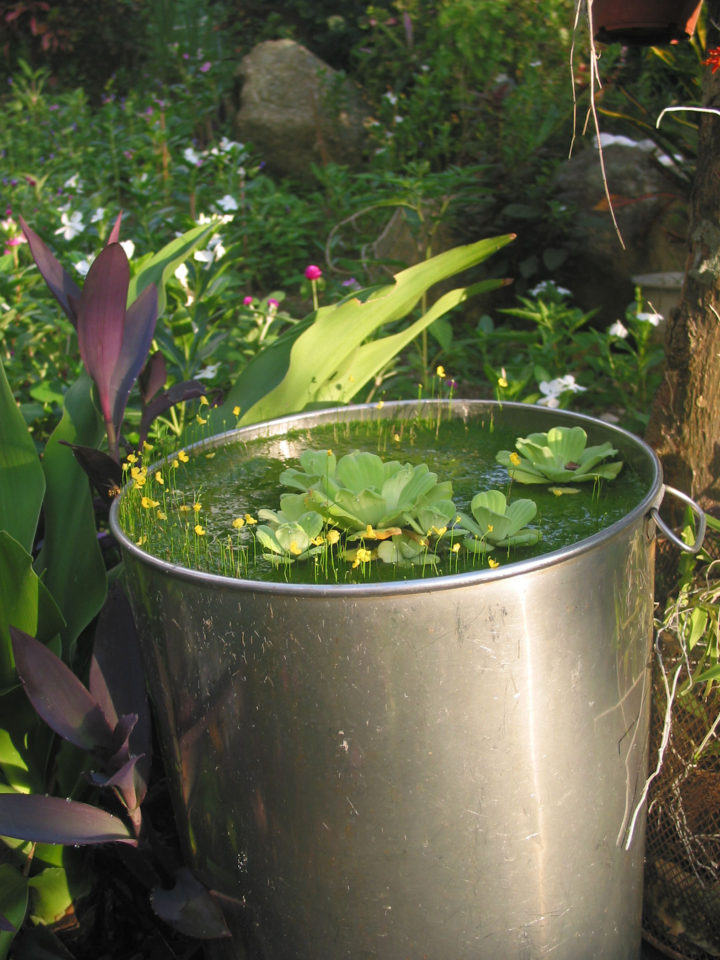The Zika-disease spreading mosquito is everywhere and all the usual precautions need be taken to prevent bites, from generously supplied nets to more inclusive education. That’s because we are ever invading nature’s own spaces without regard for the creatures that live there. The Earth is not destined for humans alone, but in synergistic-antagonistic fellowship with every living creature.
It may seem strange rise to the defence of the humble mosquito but there is every reason for the managers and citizens of any territory to give such plea close attention. It tells that there is more to the little blighter than at first meets the eye.
Mosquitoes are an inevitable denizen of freshwater ecosystems. However, a healthy wetland system is also home to many of the mosquito’s natural predators, including damselflies and dragonflies, and their nymphs, among other deadly – to the larvae – creatures of decently fresh water. Amphibians, such as frogs and newts, also live in and around wetlands. During certain stages of their life cycle, they also consume both larvae and adult mosquitoes.
Natural predators include insectivorous birds like the flycatchers, swallows, swifts and martins. Insect eating bats are another foe. Some researchers estimate that one bat can eat between 600 to 1000 insects, mosquitoes included, within a period of an hour. Water fowl consume mosquito larvae in their normal diets.
Those birds that are merely opportunistic eaters of mosquitoes are not an effective means of controlling mosquito populations on their own, but they add to the toll. Just as river fish species feed on mosquito larvae, so, as we consume these, then the mosquito is not without value to us and our ecology.
Wetlands and shallow water areas do not produce that many mosquitoes. In fact, many of the mosquito species responsible for transmitting human diseases come from stagnant water found in abandoned drums, tires, untended pet dishes, that seldom used pail and clogged rain channels. These places are too small to provide proper habitats for the mosquito’s natural predators.
Bug zappers have been shown to include a final kill which is comprised of less than one percent mosquitoes, while the vast majority of victims are beneficial insects, including those that would have taken mosquitoes. Pesticides and other chemicals kills mosquitoes, but they are guaranteed to kill other flyers both good and bad, and most likely all other insects, sometimes fish, and often amphibians suffer fatal consequences from spraying.
Natural and restored wetlands and shallow water areas do not become stagnant or stale if they have a sufficient watershed and are not contaminated by excessive nutrients or pollutants. Natural wetlands, when left to function as nature intended, reduce irregular and misplaced flooding, which helps keep breed-anywhere mosquitoes in check. Their predators would likely not have penetrated unusually flooded areas yet.
In a balanced ecosystem, plants filter the water, use the nutrients and remove pollutants. We have to bear in mind that mosquitoes are part of the foundation of the ecological food web that supports all of us. Like canaries in a coal mine, birds and a lack of an abundant and varied wild life, warn us of dangers in our environment.
Herbs and plants that repel mosquitoes are the aromatics like lemon grass, basil, eucalyptus, geranium, peppermint, rosemary, lemon balm (citronella), onions and garlic. Owners of small ponds can add small insect-eating fish like goldfish (local wild carp), fathead minnows, or mosquito fish. It also helps to provide nearby habitat for all the other creatures, from frogs to birds to bats.
Another way to reduce mosquito larvae numbers is to smother them by planting tight growing floating plants. This is not possible in fish ponds since it reduces oxygen content but it works well in tub ponds. Azolla or Fairy Moss, Azolla caroliniana, is also called mosquito fern since it grows so dense as to stifle out mosquito larvae. Water growing plants such as cattails and bulrushes attract dragonflies and other mosquito-eating insects – as they are handy look-out posts. These can be planted in suitable small water bodies.
Can those addicted sprayers explain why certain areas that do not have pesticides inflicted upon them yet are replete with ponds and wetland, get few mosquitoes. It’s because pesticides are not used, which allows the other insects and creatures play their part in the ecological whole.
The gangs of government paid workers with their sprays that tour the villages – or in the Zika case the posher residential blocks – are wasting tax money on measures that are only short-term solution and then for only hours at a time per spray. In the long term those chemical fogs forced into the undergrowth are harmful to everything.






